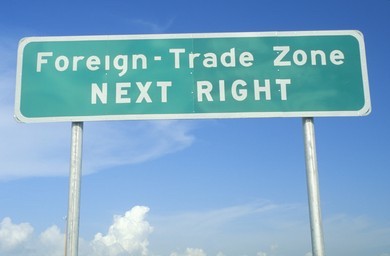Butte, Montana is a small city filled with friendly people, nature getaways, and affordable living. However, it’s also becoming the perfect hub for businesses looking to expand, connect, and live alongside an active Foreign Trade Zone that can save businesses thousands of dollars annually. This FTZ is a major avenue of success for many businesses operating in Butte.
What is a Foreign Trade Zone?
A Foreign Trade Zone (FTZ) is a regional area exempt from traditional U.S. Customs and Border Protections restrictions. These zones are positioned nearby a Customs Port of Entry and help American companies compete internationally.
Unlike other areas of the United States, an FTZ is exempt from international duties and local taxes. Essentially, this zone serves as what is internationally known as a free-trade zone. FTZs typically host facilities that are reserved for loading, unloading, handling, storing, manipulating, manufacturing and exhibiting goods and for reshipping them by land, water or air.
When an item is imported into the U.S., if it’s being stored anywhere outside of an FTZ, the company immediately has to assess and subsequently pay its duties on that product. A product imported directly into an FTZ will not have duties assessed until after the product leaves the Zone. (An FTZ does allow exemptions of export duties if your product never leaves the zone and is immediately re-exported).
According to NAFTZ.org, the Foreign-Trade Zones Board notes 193 active FTZ programs across the United States in 2019. These programs employed approximately 460,000 people at 3,300 businesses. In total, the programs imported over $767 billion in shipments.
Butte’s Foreign Trade Zone
Butte’s FTZ is located at the Port of Montana. This allows businesses to utilize Butte’s many systems of transportation, serving as a hub for domestic and international production and distribution.
The Butte-Silver Bow County zone is the most active of the three FTZs in Montana. This may be because the zone is conveniently located by the Bert Mooney Airport, major interstate highways, and extensive railways. The Port of Montana is the only FTZ general-purpose warehouse within a five-state radius in the Rocky Mountain Region of the U.S.
The Benefits of Foreign Trade Zones for Businesses
Tax & Duties Exempt
Foreign goods are exempt from U.S. duties or local taxes. Customs duties and taxes are due only at the time of transfer from the FTZ for U.S. consumption. So, if the merchandise does not enter U.S. commerce, then no duties or taxes are paid for those items.
Export Duties Exempt
Manufactured finished products may be exempt from export duties, however, there are exceptions for Canada and Mexico under NAFTA. Otherwise, no duties or quota charges are placed on re-exports.
Fee Free Storage
Products can be stored for an indefinite period of time duty-free, which serves as a major convenience for businesses in the FTZ.
Warehouse Security
FTZs allow companies to apply extra security when tracking inventory. By bringing goods into an FTZ warehouse that the business owner controls, they can identify and classify goods at the warehouse instead of at the port at a Customs control location. These warehouses are protected under Customs and Border Protection security.
Import Quota Exemptions
Most merchandise may be held in the FTZ, even if it is subject to absolute quota restrictions. When the quota opens, the merchandise may be immediately shipped into the U.S. Customs territory. Unlike a bonded warehouse, items can be stored indefinitely in an FTZ.
Lower Bureaucracy
Lower bureaucracy is a huge benefit for most businesses owners. Rather than filing mountains of paperwork each time a shipment arrives, businesses operating in an FTZ only need to file a Customs entry weekly. Aside from saving business owners time and headaches, the weekly entries also help owners save money. Considering the merchandise processing fee of 0.21%, a company with 10 shipments each week, valued at over $230,952, would save $226,980 annually with these methods. This weekly process also helps business owners save on customs brokerage fees.





